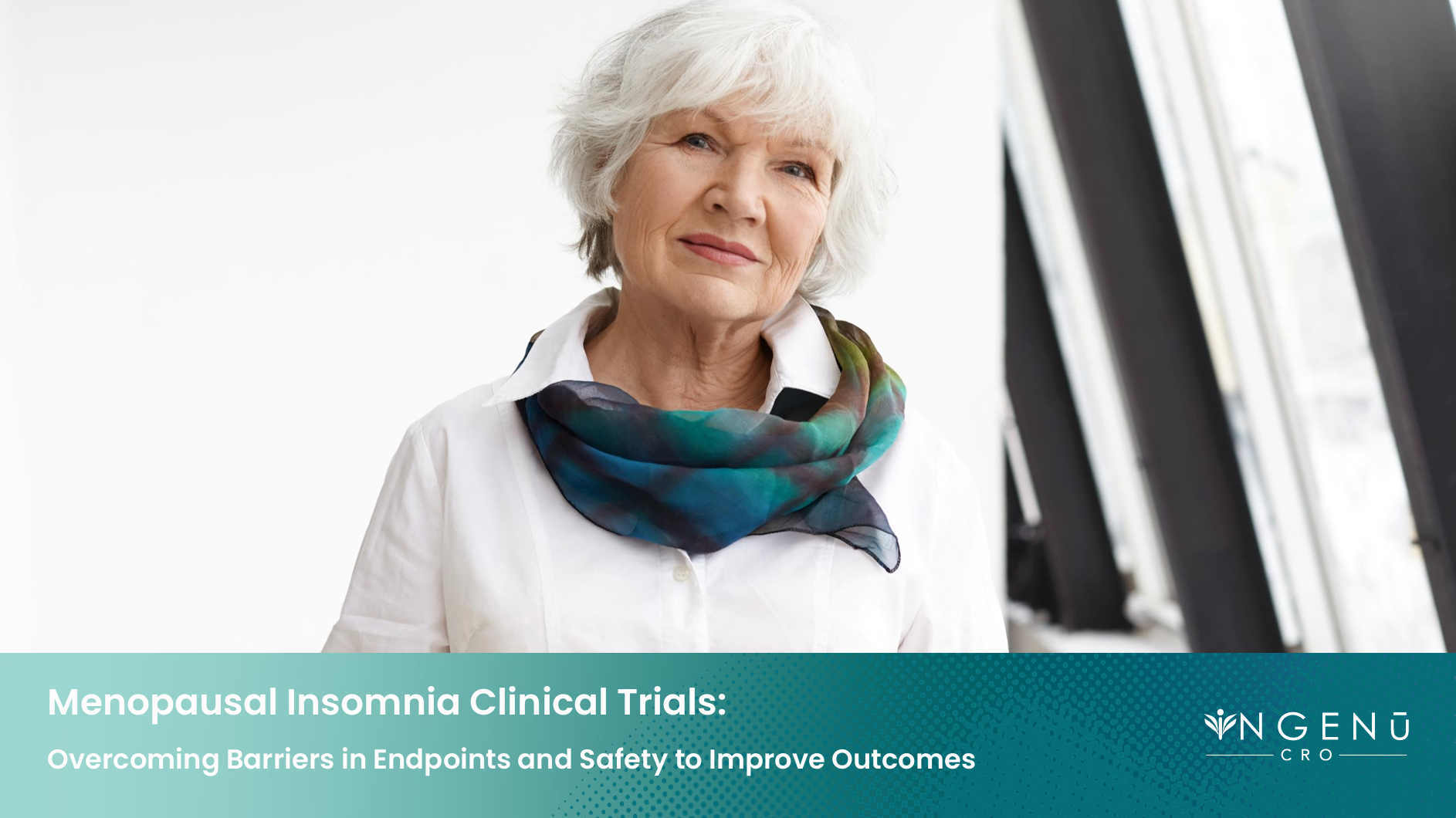Download our whitepaper,
"Menopausal Insomnia Clinical Trials: Overcoming Barriers in Endpoints and Safety to Improve Outcomes"

What's Inside:
- Key FDA-Approved Pivotal Endpoints for Menopausal Insomnia Clinical Trials.
- Optimizing Recruitment with Adaptive Trial Designs for Menopausal Insomnia.
- Comprehensive Analysis of FDA-Approved Menopausal Insomnia Drugs.
- How Diagnostic Criteria for Menopausal Insomnia Have Evolved and Impact Research.
- Overcoming Common Pitfalls in Menopausal Insomnia Clinical Trials.
- And additional insights to drive your trial's success.
Access your complimentary whitepaper today:
Menopausal Insomnia
Menopausal Insomnia is a common sleep disorder that affects many women during perimenopause, menopause, and postmenopause.
Menopausal Insomnia is often marked by an inability to fall asleep, frequent awakenings during the night, or waking up too early and being unable to return to sleep. These sleep disturbances are largely due to the hormonal changes that occur during menopause, particularly fluctuations in estrogen and progesterone, which disrupt natural sleep cycles and thermoregulation.
Menopausal insomnia can significantly impair quality of life, impacting physical, mental, and emotional well-being, and increasing the risk of comorbidities like anxiety, depression, and cardiovascular issues.
At iNGENū, we are dedicated to advancing the understanding and treatment of Menopausal Insomnia. Through cutting-edge research and a patient-centered approach, our mission is to deliver innovative solutions that improve the lives of individuals and families impacted.
Between 40% and
60%
of women report sleep disturbances during menopause
Sleep disorders affect approximately 16% to
47%
of women during perimenopause
Over
60%
of postmenopausal women report insomnia symptoms
Our clinical team has over
120
years of combined clinical trial experience